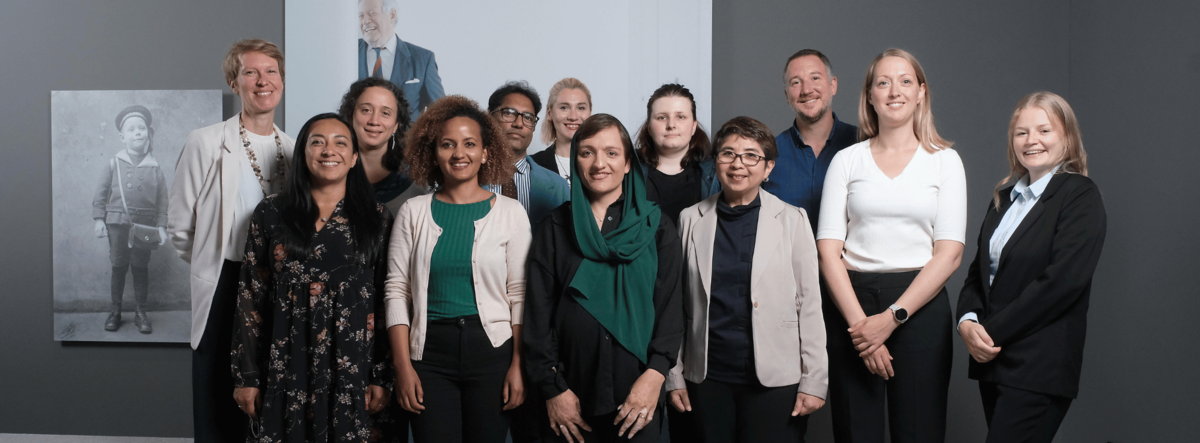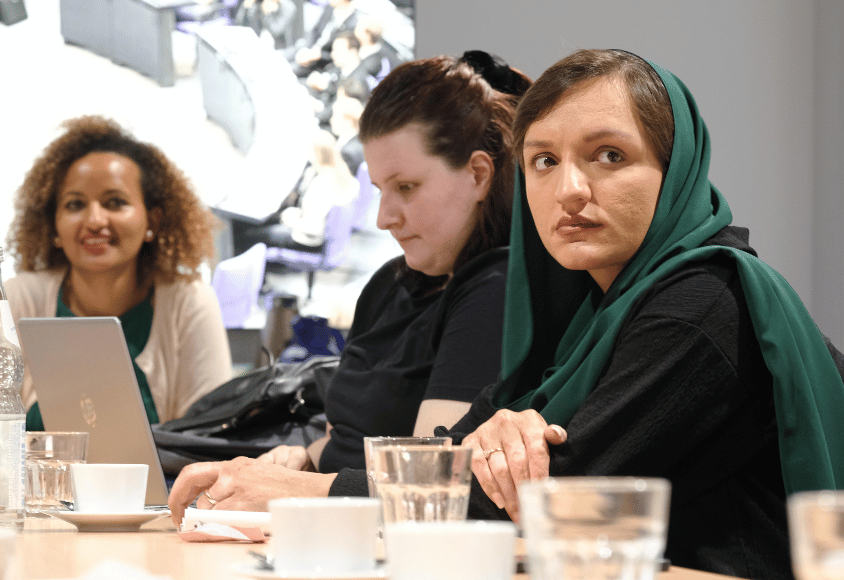Together with the Friedrich Ebert Foundation (FES), we organised a two-day workshop in Hamburg. From 21 to 23 June, our Global Expert Group on Conflict Resolution and Peacebuilding met to discuss the global consequences of the Russian war against Ukraine.
The network consists of representatives from academia, civil society and politics who themselves come from conflict and post-conflict countries or have worked on these issues in their regions.
In a kick-off session on Thursday 22 June, the group identified the issues they would explore in more depth during the workshop. Afterwards, the participants divided into two teams that focused on different topics such as "A new debate on geopolitics and double standards", "Direct effects of Russia's war against Ukraine and their structural underpinnings" and "The future of peacebuilding and conflict resolution".
They examined the consequences of the war in Ukraine, the changing world order and especially the role of the global South on peacebuilding and conflict resolution measures. The discussion also focused on the changing perception of conflicts in other parts of the world and the lessons learned from the past. In this regard, participants particularly emphasised the role of civilians in peace-building processes in former conflict areas and measures for dealing with weapons in conflict areas - and what happens to them when the fighting is over.
Last but not least, questions about the justice of energy supply and the effects of climate change in different parts of the world and how to deal with the consequences were also on the agenda. Here, the participants formulated the importance of "Just Transition", i.e. the just change of economic, political, ecological and social structures.
To deepen the topics discussed in the workshop, the group played out five scenarios in a "Strategic Foresight" exercise at the end to open up new horizons of ideas and to think outside the box.
In the coming months, the group will process the results of the workshop and, after further meetings, use them to develop policy recommendations. These are to be published in several languages in early 2024.
Kick-off workshop of Global Expert Group







